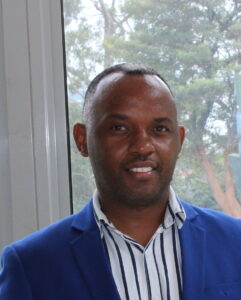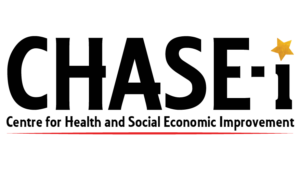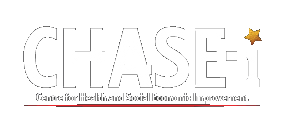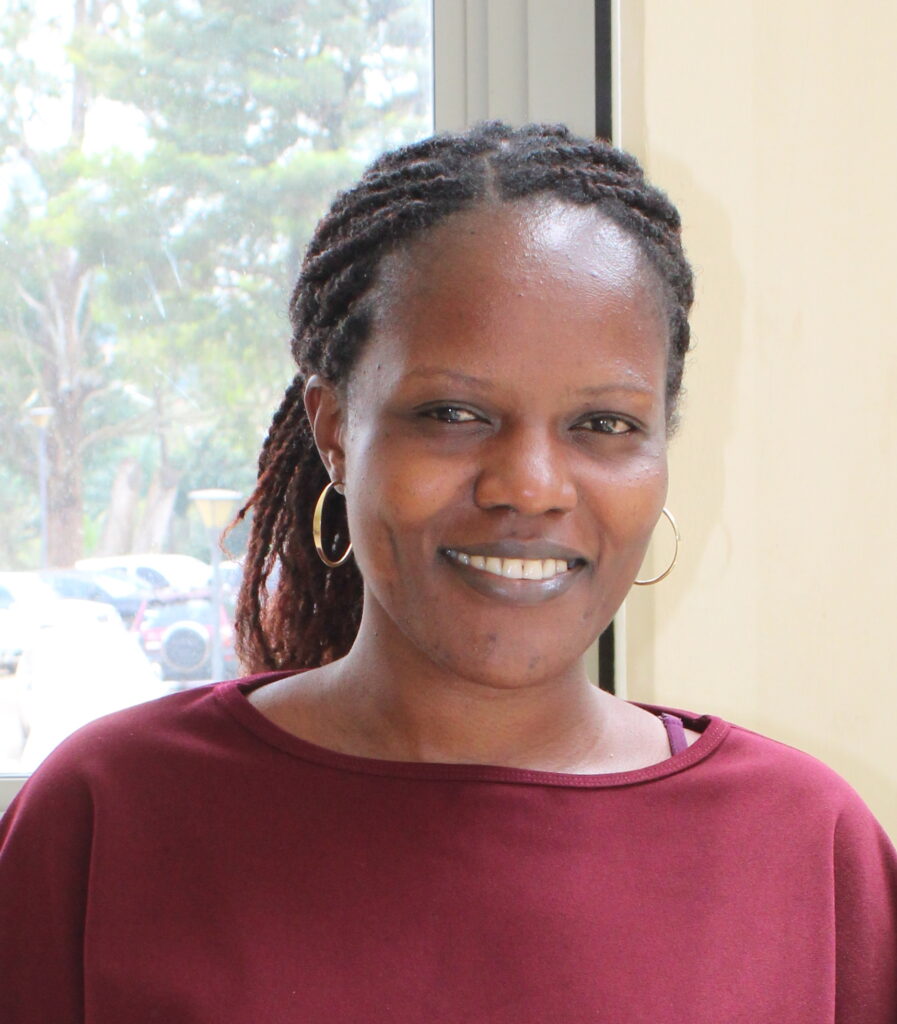Reflections of a humanitarian practitioner on a research partnership with academia and policy actors

Andrew Masaba
- November 18, 2021
While the humanitarian community in other parts of the world might have strong networks and alliances with academia, it is not the case for most organisations in the developing world – Uganda in particular. Most of our (humanitarian) interface with academia has been contracting professors and researchers as trainers, evaluators or external advisors on our programmes. The relationship is largely transactional, timebound and there isn’t much follow up obligation on either side – academics will come, perform their task in a usually very short timeframe, write a report and leave. Perhaps to be contracted again as a short-term consultant when need arises in the future and if their work is deemed to be good.
The recent focus on localization and decolonization of humanitarian aid has led many humanitarian actors in Uganda and beyond to explore meaningful collaborations with non-traditional institutions such as universities, governments, and the private sector. However, there is limited knowledge and documentation on how these collaborations translate into reality within the humanitarian context. Or how such a collaboration can contribute to effectiveness in addressing contemporary humanitarian issues.
The COVID-19 outbreak in March 2020 provided an opportunity for the Lutheran World Federation (LWF) Uganda to learn from collaborations of this nature. With funding from Elrha/R2HC (Research for Health in Humanitarian Crises), LWF partnered with Makerere University, Gulu University, the Ministry of Health (MoH), and Agency for Cooperation in Research for Development (ACORD) to conduct research on Refugee Lived Experiences in COVID 19. The study focused on urban and rural refugees living in Kampala (Kisenyi), the 19 refugee settlements in Adjumani and Kyaka refugee settlements.
Throughout this partnership, a plethora of synergies existed among the study partners. As a co-investigator, I was involved in all phases of this study from design to the dissemination of the results. There was optimization of cross-sectional synergies and, as a humanitarian and development practitioner, I strongly recommend this kind of partnership as I will be highlighting the potential benefits and outcomes for the humanitarian community as explained in the rest of this article.
At the Design Stage: For effective implementation and credibility of the mixed methods study – there was inclusion of factors that were to mutually benefit and actively reinforce fulfillment of the diverse partners’ missions and visions. In this case, the design of the study was expanded beyond the individual organizational geographic scope or institutional programmatic mandates to allow for a thorough understanding of the study topic. The study team was multi-disciplinary comprising of academic specialists including public health specialists, medical doctors and epidemiologists, sociologists, nutritionists, psychologists, legal and humanitarian practitioners. With this breadth of expertise, it becomes extremely expensive and nearly impossible for any single organization to pool such resources onto one project. This approach was very resourceful in multiple ways including a multi-faceted understanding of refugees’ experiences during COVID-19. As such it provided for the study results being useful to a broader spectrum of stakeholders. Furthermore, this partnership was dyadic in nature giving academic institutions the experience of operations in a humanitarian setting through research for action using humanitarian principles and approaches; presenting a WIN-WIN synergy. Additionally, there was with an extra requirement of ensuring that the WHO’s COVID 19 prevention guidelines were adhered to at all stages. I realized that by conducting evaluations or evaluations within our individual organizations, concerns about organizational or project restrictions could be an obstacle to a full appreciation of these often-complex interrelationships. This limited understanding may lead to the inefficiency of a given humanitarian intervention. The nature of the REFLECT study design was such that the results of the study could be used on a global, national and sub-national scale.
Data Gathering and Analysis Stage: The mixed methods study was a bridge to understanding the efforts of different actors in COVID 19 response, and also how the communities perceived these. The study reached more than 2,000 participants through a quantitative survey, Key Informant Interviews (KIIs) and Focus Group Discussions (FGDs). These involved all stakeholders at community, regional, national and global levels. The participants included refugees, local community leaders, district officials, health workers representatives from WHO; UN Agencies; and humanitarian workers. This scope of participants is equated to good working relationships and the sense of ownership of the study (mutual benefit). For a humanitarian agency like LWF this was the first time we had ever had to conduct mixed methods research with a very large population size which was also diverse in sociodemographic characteristics and geographical locations. Normally our operational research samples fewer participants and looks at specific variables which were not as complex as what we had on the REFLECT study.
Again, for us as humanitarian practitioners, this was yet another opportunity to meet and create strong and sustainable networks with actors we had never had a close relationship with, like the Ministry of Health. In Uganda refugee matters are handled by the Office of the Prime Minister (OPM), and so most of our direct dealings as IPs are with OPM and UNHCR – even when some of LWF’s interventions e.g. in WASH, Nutrition or SRH are health related. So, it was a great opportunity to partner and forge ties with MoH and other actors like the professional body for social workers (NASWU) because we have multiple interventions in the protection sector.
Unlike other studies; the study team, including the principal investigator, were all involved in the data collection process which gave a clear understanding and aided the reporting process. With this approach, as a humanitarian worker I benefited a lot from the evening debriefing reflections that were informed by the day’s interviews. This shined the understanding of the complementariness and possible scouting for future partners for my agency and how best to support marginalized communities.
In addition to leading a rigorous process, the academic institutions and people who do research as a profession provided us an independent external view of the refugee lived experiences that was without bias of implementers. Such a perspective enabled us as humanitarian workers to critically reflect on our work, approaches and how they fit in the realities of refugees and policy makers. The in-depth analysis by different specialists birthed several publications covering diverse topics such as behavioral change, MHPSS and health systems in humanitarian contexts. This allowed us to have an improved understanding of COVID-19 lived experiences for from multiple angles, and this is already helping us to effectively undertake evidence-based programming at all stages from design, review and implementation. With such an understanding, humanitarian actors are able to design more efficient interventions and fundraise for them. In addition, we were able to map out the kinds of partnerships that would work in responding to COVID 19 and epidemics in general.
Dissemination of the Findings: The extensive nature of dissemination undertaken in this study would pass for a project in its own right. The study results were widely disseminated to multiple audiences at international, national and subnational levels. It also went all the way to the different local communities – including to children, youth, the elderly and people not usually reached by researchers. This was done using multiple platforms including webinars, conferences and in-person meetings with parliamentarians, national and district leaders, humanitarian actors, communities (including children), radio and television programs. The study also used the print media to the maximum and they helped disseminate widely. This was in addition to the internal audiences in different humanitarian organizations and through the “backdoors” or informal channels. It was essential to ensure that refugees’ voices, priorities and needs reached the right audiences. One of the highlights of this release was the presentation of our study findings to Elrha’s team and other partners conducting research in the humanitarian world. I very much appreciated this interface and learning about what is happening elsewhere in the world. In addition to study findings and learning about others’ work, the sharing approaches used at these webinars and platforms were innovative, accommodative and inclusive at all levels. As a humanitarian worker I felt that sharing the study recommendations with actors at global level was a very good idea to enable the much-needed global reach.
Locally, talking to the policy makers at national level was crucial. I felt it an honor to be part of the team that made sure they had the right evidence at hand to influence decisions. In addition to directly partnering on the study with MoH for example, it was very fulfilling to learn that the findings from the REFLECT study partly contributed to the review and development of Uganda’s newly-minted Public Health Act. Hearing this from our MoH partner was indeed a vote of confidence on the need to have such more studies which bring academia, policy and practice together.
The approach for dissemination at district level, through separate meetings with the different departments and technical teams, was very effective unlike the popular “workshop approach” that many agencies use. Our approach was to find key decisionmakers and stakeholders in their own spaces, present to them study findings (some of them not for the first time as they would have been part of our previous dissemination activities), give them space to process the findings and then respond to them. Finding them in their spaces gave them more time and stronger voice not drowned by multiple participants that are usually at dissemination events. We gave them time to engage with us, update us on what had changed or how they could potentially incorporate some of our study findings in their work. So, basically, we allowed the different district departments and officials to reflect on the findings of the REFLECT study. This further enabled the team to learn about their plans based on the findings shared, and it was interesting to hear how each department digested the findings and the types of action plans they initiated. Infact some of them surprised us by reporting on some of the initiatives they had already started on following previous engagement with the team.
This approach also provided an opportunity for the study team to hear what the local stakeholder had to say about what had changed since data collection. For me as a humanitarian actor, this interaction was crucial in framing and strengthening the understanding of the localization agenda. I interacted firsthand with local decision makers and stakeholders on their priorities and how our programming could specifically contribute to achieving them. The interaction with the different community members through meetings and radio programs was also very enlightening. During dissemination of findings to children for example, in one of our stakeholder engagements with children – one of the children mentioned that he had just learnt the proper way of wearing a facemask from the REFLECT study team. It made me think a lot about the approaches we were taking in the general SBCC campaigns that were not segregated by age or gender. It also gave us a good idea on what works and what doesn’t work. It was clear to us for example that SBCC communications cannot be generalized. Or that adherence to COVID 19 prevention SOPs was not going to be possible if the critical needs of communities such as hunger or livelihoods were not addressed. With such knowledge humanitarian actors like LWF are able to assess and direct their limited resources towards interventions that work. Or also understand how to form structures that complement the government plans for sustainability.
Conclusions and Way Forward
Humanitarian workers can improve on methods of disseminating evaluation findings and even routine programme work. This means going beyond the usual workshops and sending of reports to different actors; dissemination activities need to be planned better and budgeted for if they are to be impactful. And all stakeholders on the continuum of humanitarian response must be fully engaged from community to global levels.
Moreover, there is need to improve on data driven-programing. Data-driven or evidence-based programming is talked about a lot but rarely done well, atleast in our part of the world. It was interesting when one of the children mentioned that they had just learnt how to properly wear a mask during our meeting. That was after humanitarians had conducted very many campaigns to promote SBCC among which included wearing masks. This meant that we could do much better by undertaking such a detailed analysis in advance of interventions. As a result of this REFLECT study effort to provide mask samples for children, teach them how to wear and also encourage stakeholders to target them, as LWF we were able to tailor our SBCCs for the different categories such as children and the adults. And a lot of organisations have since followed suit.
The joint design of multi-sector interventions within a consortium of humanitarian actors, academics and policymakers is a possible area of leverage for all humanitarian actors like the LWF. Currently LWF has several projects in a consortium with other humanitarian actors. This could be broadened so that the academic and research community can apply a more effective approaches to conducting independent assessments and improving intervention approaches. At the same time, humanitarian actors can concentrate on the effective implementation of projects. In this regard, academia will have the opportunity to contribute to national development by improving its curriculum to account for real contextual information in the humanitarian world. Again, it is a WIN-WIN situation.
It would also be worth considering to have the academia and research community to be part of the high-level humanitarian response coordination platforms. As this involves both the government, local and national humanitarian organization. This creates an opportunity for humanitarian actors and policy makers to tap into their highly specialized skills. This can be mutually beneficial in many ways. It strengthens the localization agenda by providing the much-needed evidence while also allowing academic institutions to place their research and internship students to investigate actual challenges and opportunities in the humanitarian world which would in turn improve several cross-sectoral outcomes.
Studies like REFLECT could lead to the joint design of project prototypes for testing. These should be small-scale projects that different organizations can integrate into existing programs or can easily raise funds for. Really, the possibilities for partnership and related benefits are endless. And like I began by saying, it is possible that some wiser and more-experienced humanitarian NGOs are already doing this and tapping into the benefits of partnering with academia and the policy world; but for us here this would be a great direction to take.
About the Author
Andrew Masaba works with the Lutheran World Federation (LWF) and was a Co-investigator on the REFLECT study.


